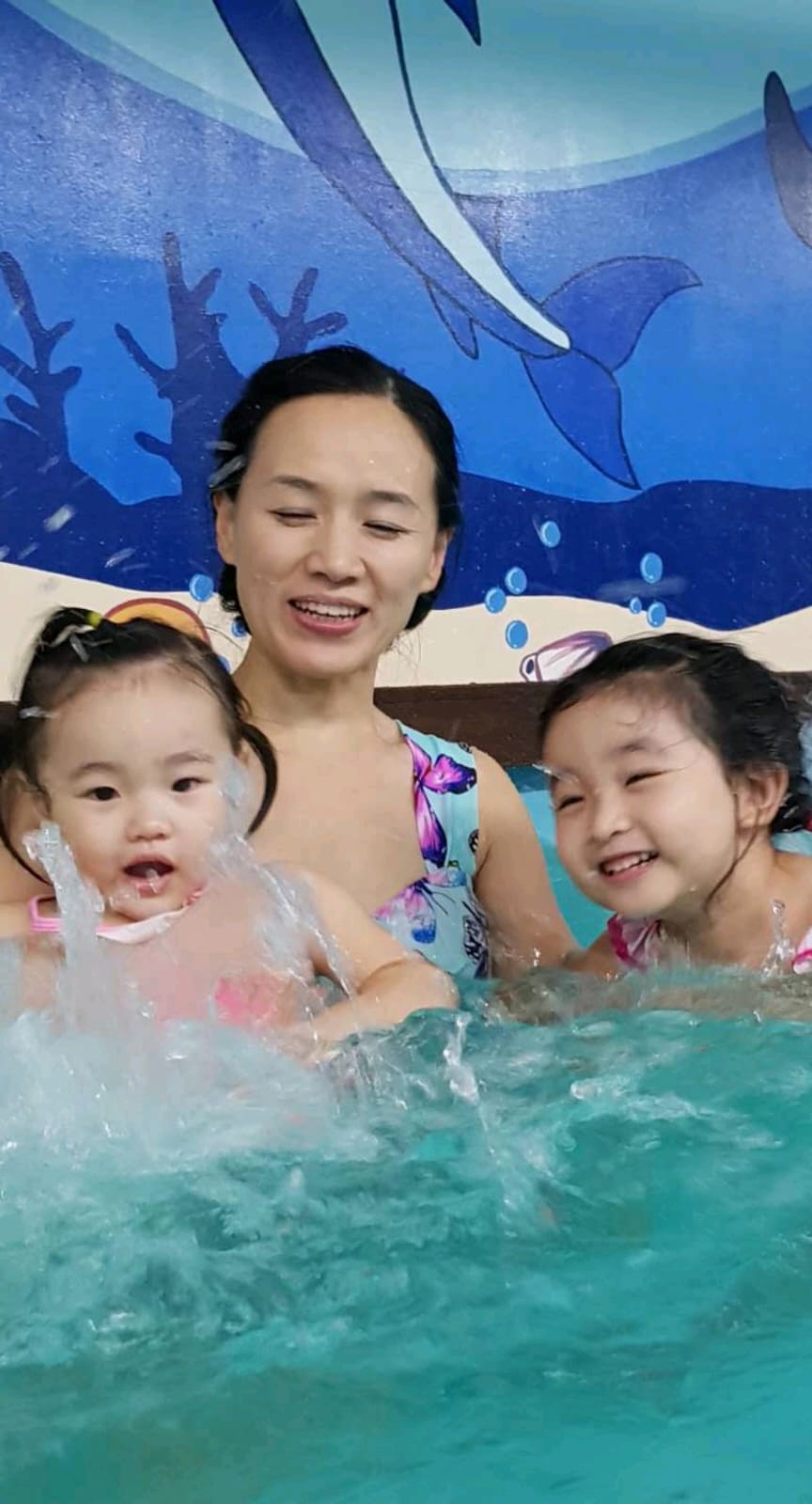Babies can read your body language and are sensitive to any subtle changes. Be calm, relaxed and always display enthusiasm by putting on your best smile! Your little one will not take long to mirror your gestures in the water.
Do not expect your baby to submerge or swim very soon after they are introduced to the water. Every child is different, with varying capabilities. Time and frequency of practice is of essence. So, avoid being over ambitious and allow your babies to gradually develop and improve at his or her own pace. Focus on the long-term goal and refrain from putting pressure on short term achievements.
If your child accidentally ingested water during the lesson. Cough together and give them a gentle pat on their back. Praise them for trying and keep encouraging your kid! By doing this, children will not only learn but love swimming.
If your child cries during the lesson, it doesn't mean that your child is not ready for swimming lessons. Common triggers for this reaction are separation anxiety, fear of new people, and fear of new experiences. These attitudes are all a very normal part of child development. Give your child some time and let him develop his confidence. Don't get discouraged or put off taking lessons. We are certain that your child will eventually get past their fears or anxiety and will enjoy swim lessons. We love seeing fearful swimmers gain confidence in the water!






